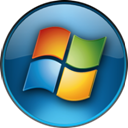Top macOS Alternatives: Explore Your Next Operating System
macOS, Apple's Unix-based operating system, has long been a staple for many users, particularly those within the Apple ecosystem. Known for its elegant interface, robust performance on Macintosh computers, and integrated features like Apple Music, Apple TV, Apple Podcasts, and Sidecar, macOS offers a premium user experience. However, a variety of reasons, including hardware compatibility, cost, or a desire for more customization and open-source freedom, lead many to seek out compelling macOS alternative options. If you're looking to switch things up or explore new horizons, you're in the right place.
Best macOS Alternatives
Moving beyond macOS opens up a world of operating systems, each with unique strengths. From highly customizable Linux distributions to familiar Windows environments, there's an alternative suited for every user's needs. Let's dive into some of the best:

Ubuntu
Ubuntu is a popular Debian Linux-based, free and open-source operating system for desktop computers. It's an excellent macOS alternative for those seeking a stable, user-friendly, and highly customizable environment with features like OTA Updates and robust package management.

Linux Mint
Linux Mint is a widely used, free and open-source Linux distribution known for its elegance and modern design, making it a great macOS alternative, particularly for those transitioning from Windows or macOS due to its familiar interface. It's based on Ubuntu and Debian, offering features like a built-in file manager, night mode, and excellent community support.

Debian
Debian is a foundational free and open-source operating system known for its stability and flexibility. As a powerful macOS alternative, it provides a highly customizable experience with a robust package manager and low memory usage, appealing to users who prioritize control and efficiency.

elementary OS
elementary OS is a free and open-source Linux-based operating system built on Ubuntu, highly regarded for its aesthetically pleasing and macOS-like interface. It offers a distraction-free UI and Flatpak support, making it an excellent macOS alternative for users who appreciate design and simplicity.

Arch Linux
Arch Linux is a free and open-source GNU/Linux distribution targeted at competent Linux users. It's a highly customizable and lightweight macOS alternative for those who enjoy a hands-on approach, offering a rolling release model and extensive Wiki documentation through its Arch User Repository.

Windows 10
Windows 10 is a commercial operating system by Microsoft, offering a familiar environment for many users. As a widely adopted macOS alternative, it provides broad software compatibility, OneDrive integration, and features like Tablet support, making it a versatile choice for both personal and professional use.

Manjaro Linux
Manjaro Linux is a user-friendly, free and open-source Linux distribution based on Arch Linux. It's an excellent macOS alternative, particularly for those seeking the power of Arch with added ease of use, offering a rolling release model, robust stability, and support for Nvidia drivers.

Windows 7
Windows 7 is a commercial operating system from Microsoft, preceding Windows 10. While older, it remains a viable macOS alternative for some, known for its stability and features like Snap windows and Windows XP Compatibility, offering a more traditional Windows experience.

Fedora
Fedora is a free and open-source Linux distribution developed by the Fedora Project, sponsored by Red Hat. It's a cutting-edge macOS alternative, offering an in-built GUI, separated workspaces, and a focus on innovation and community development, ideal for developers and early adopters.

Xubuntu
Xubuntu is a free and open-source Linux operating system based on Ubuntu, featuring the lightweight and highly configurable Xfce desktop environment. It's an excellent macOS alternative for those seeking speed and efficiency, especially on older hardware, while still providing a polished user experience.
Choosing the best macOS alternative depends entirely on your priorities. Whether you prioritize open-source freedom, customization, a familiar interface, or lightweight performance, there's an operating system out there waiting to be discovered. Explore these options and find the perfect fit for your computing journey!